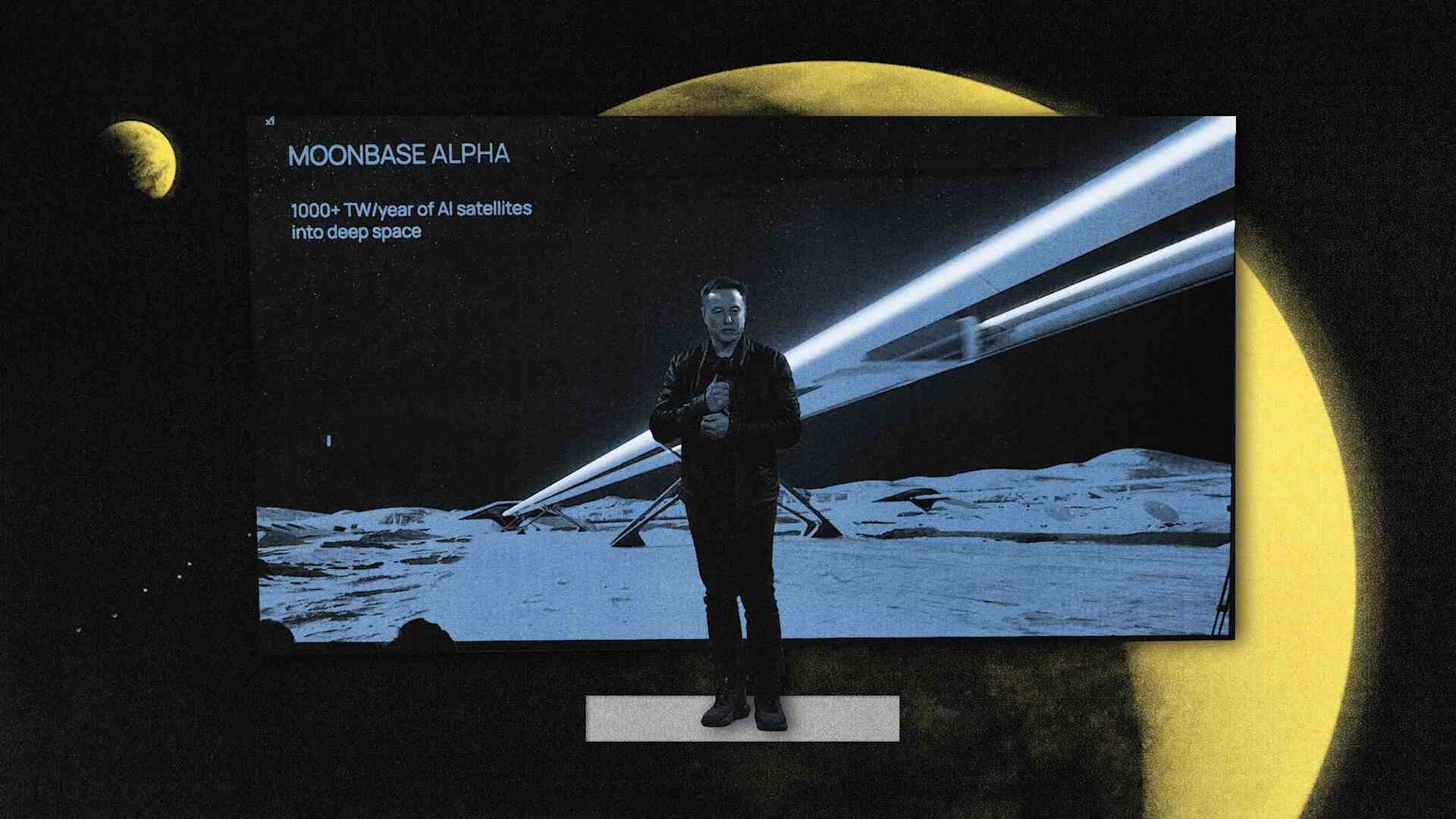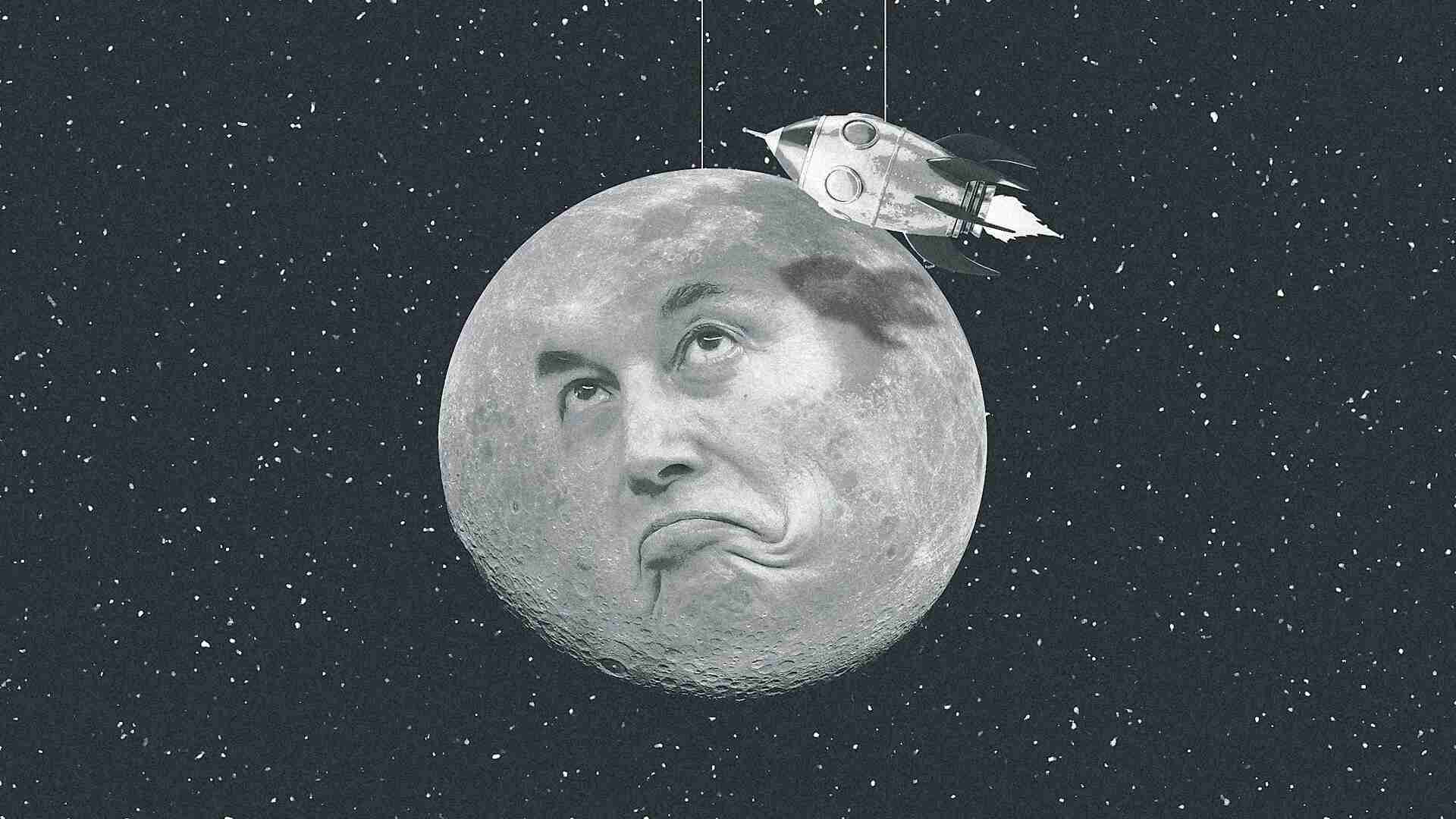- | 9:00 am
There’s never been a better time to listen to comic books
Superhero movies are a dime a dozen, but the comic book podcast is about to hit its stride.
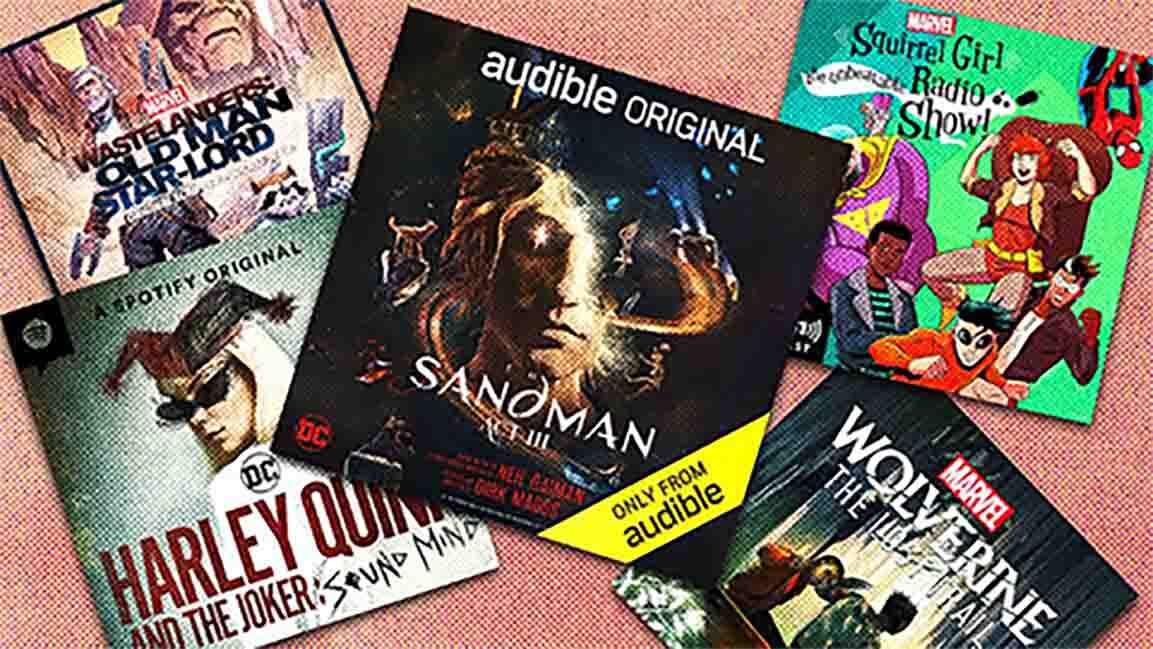
We’ve had a nice, long run of comic book movies and television shows. One after the other, with big actors and even bigger action sequences. Before the end of the year we’ll get Loki Season 2, The Marvels, and Aquaman 3, but then—and maybe you saw this coming—expect a lull. The tentatively ended WGA & SAG-AFTRA strikes mean delays. Sure, more movies and shows are in the pipeline, but then we might be in store for a bit of a drought.
Where’s a fan supposed to get their comics fix? More and more, it seems that comic publishers are turning to podcasts, transforming a primarily visual medium into something that’s compelling in sound alone.
Comics have always relied on visuals to build their complex worlds, but a podcast’s voice acting, sound effects, and music transport can just as readily transport listeners to the world these characters inhabit. Today’s comic book podcasts are an intentional, richly produced series of stories, throwbacks to the radio dramas your grandparents used to listen to, like Superman or Little Orphan Annie. If it all sounds very anti-visual, it is, but you can hear and feel the action.
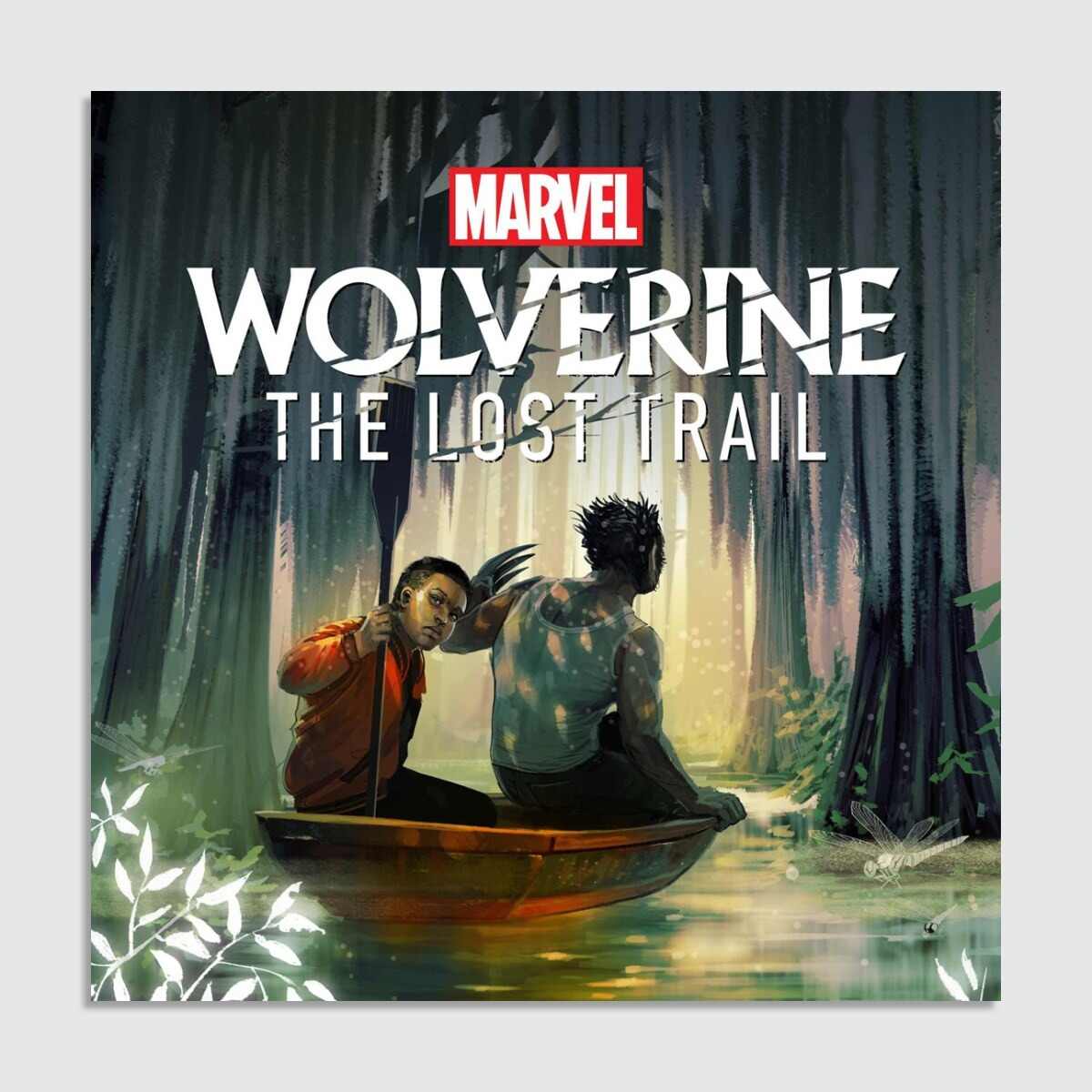
[Image: SXM]
The immersive mutant thrillers Wolverine: The Long Night and Wolverine: The Lost Trail transform the SNIKT! and SLICE! onomatopoeia we’re used to seeing as big, bulky, ravaged type into a sensational audio experience for you to hear, or even feel the metal carve through flesh with evocative music setting the mood, all doomy and gloomy. Close your eyes, see the action for yourself.
Before COVID and lockdown, Stitcher—an audio provider that shut down in August—earned attention with Marvel’s Wolverine series The Long Night (2018) and The Lost Trail (2019), winning a 2019 iHeartRadio Podcast Award for Best Scripted Podcast and a 2019 Webby Award for Original Music Score and Best Sound Design (Features), as well as a 2020 Webby nomination for Scripted Podcasts.
More recently, in partnership with SiriusXM, Marvel released their weekly Wastelanders series featuring Star-Lord, Hawkeye, Black Widow, Wolverine, and Doctor Doom. Wastelanders boasts a star-studded cast including but not limited to Keith David (Kingpin), Kristen Johnston (She-Hulk), Stephen Lang (Hawkeye), Chris Elliott (Rocket Raccoon), and Susan Sarandon (Helen Black). April 2022’s Squirrel Girl: the Unbeatable Radio Show brought that fan-favorite character to life, starring Milana Vayntrub as Doreen Green, aka Squirrel Girl.
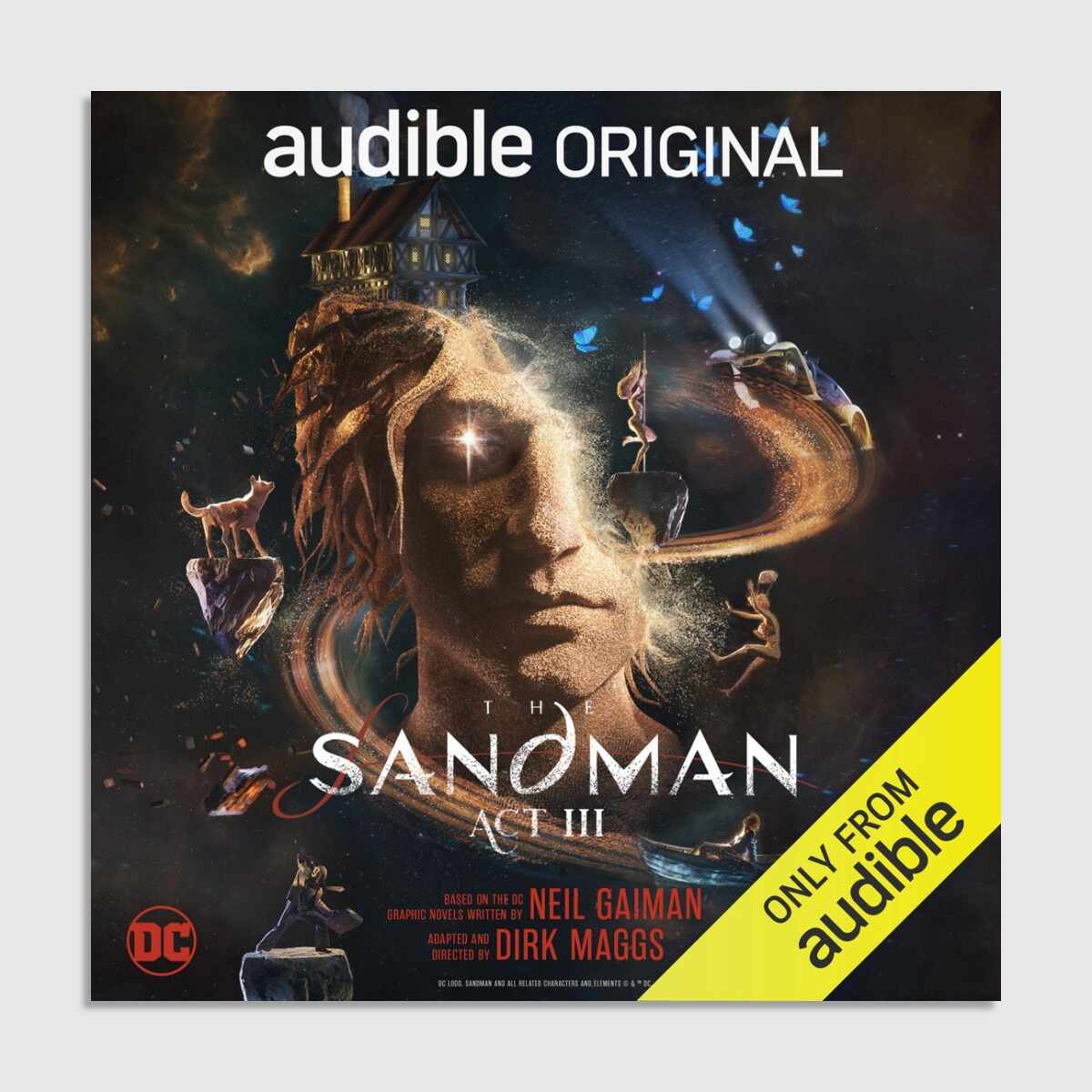
[Image: Audible]
Over a year, if you heard one episode of each of those Marvel podcasts per week, you’d still have some catching up to do. Sure, some are less than an hour in length, but getting in those Marvel podcast series on top of the latest Disney+ series—be it She-Hulk or Ms. Marvel or Moon Knight or Loki or Hawkeye or WandaVision or Secret Invasion—can be exhausting, to say the least. Critic, educator, and filmmaker Brandon Wilson, who’s given comic book podcasts a chance, feels frustrated with the Marvel Cinematic Universe (MCU) and Disney+ streaming.
“Disney+ is the worst thing to happen to Marvel, it’s been terrible, it’s diluted the brand and forced them to tell stories that didn’t need to be told,” he says. The content overload has cheapened Marvel’s storytelling, he argues. “It’s like a parent giving their kid chocolate; give them enough until they get sick, or tell them they’ve had enough. There is a getting sick equivalent here,” he says. Wilson, who’s an Angelino frequently in his car, has appreciated the opportunity to engage with something different—and not the Disney+ wealth of content—via podcasts. Although he’s not actively listening to anything now, he did dabble in the Old Man Star-Lord series, “That was one of my first times listening to a narrative podcast.”
Marvel isn’t the only one active in the podcast space, Warner Brothers (WB) and DC Comics have been equally ambitious. Coproductions between WB & Spotify Studios have included Batman Unburied, Harley Quinn & The Joker: Sound Mind, and most recently, The Riddler: Secrets in the Dark. In June, Batman Unburied was renewed for Season 2.
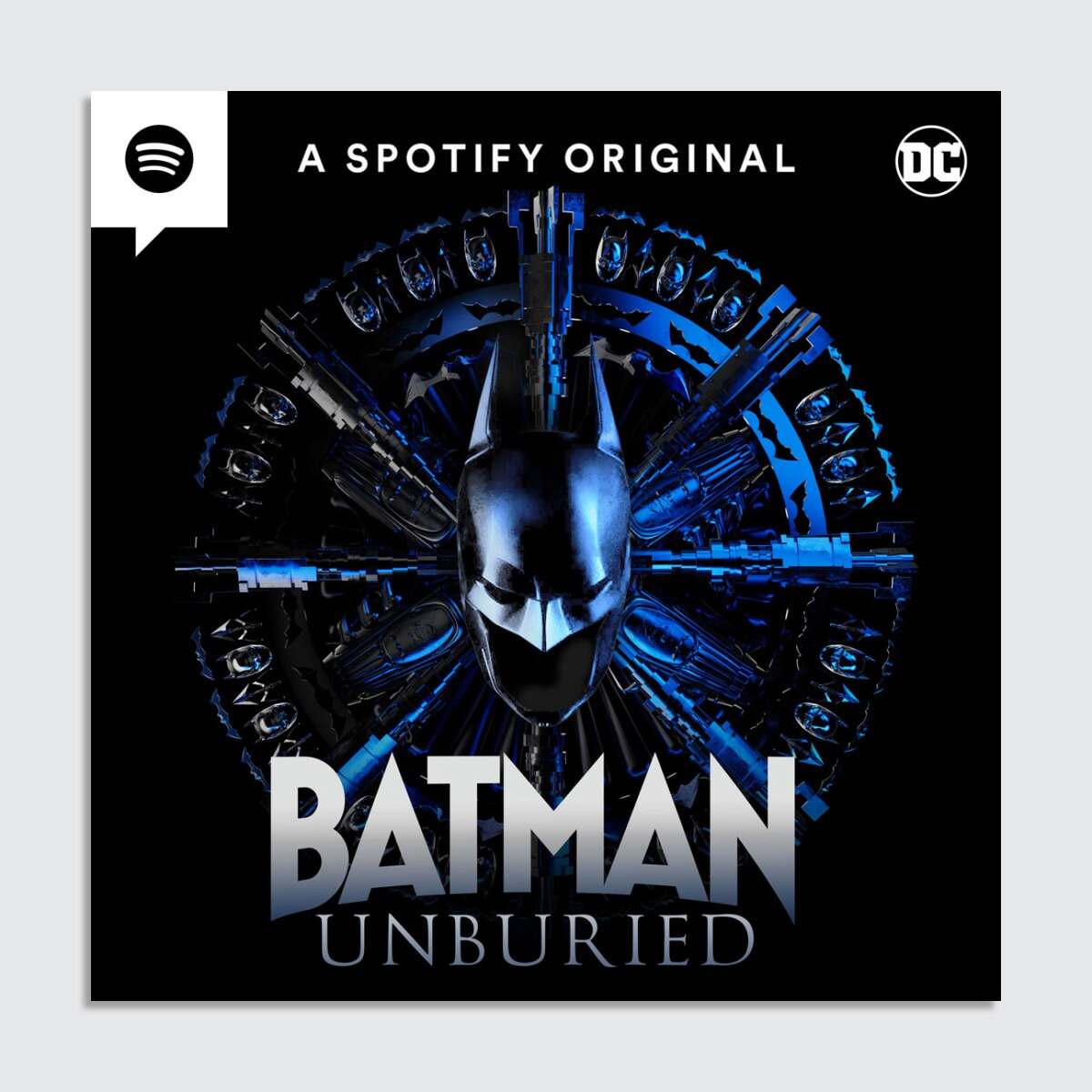
[Image: Spotify]
For Liz Gateley, Head of Development at Spotify Studios, podcasts offer a way for people to create their own journey. Maybe screen time hasn’t been satisfying, and podcasts offer the chance to get away. A long or short car ride, walking the dog, you can escape and enjoy another world in an intimate way. But to Wilson, because comic books are so intensely visual, it became tough to stick with the audio-only storytelling of the podcast genre. “The visuals can’t be conveyed,” he says. “I was into it for a bit, but then lost interest. There’s nothing I fault in the production and voice acting, but it’s comic books—it’s something visual.”
And yet, there’s no better time for comic book fans, especially when it comes to podcasts, “The coolest things are happening in this space,” said Gateley. Scripted podcasts are all about storytelling, and Spotify is keen to “create sonic cinema” with writing and structure, voice talent and music, as well as sound effects, producing a unique audio experience. David S. Goyer, famous for the Blade Trilogy as well as Christopher Nolan’s Dark Knight Trilogy, created the Batman Unburied podcast. “There’s a rich history of Batman renditions,” said Gateley, “bringing in David S. Goyer to create something for us has been exciting.” From Brandon Wilson’s point of view, it makes sense to have filmmakers in the podcast space. “They know how to tell a story. If they’re worth their salt, they love the challenge to give up the one thing, the visuals, and now with the podcast, all you’re doing is audio, there’s a lot of headaches you don’t have. I imagine there’s a great liberation.”
If special effects, postproduction, are out of the equation, “That’s another thing that a filmmaker may be very turned on by,” said Wilson, especially when you don’t have to worry that your budget for 50 spaceships in a special effects shot is not only unreasonable, but also unattainable. Podcasts can extend the intellectual property (IP), lifting characters and worlds into new media and new territories, pushing the brand through different, fresh IP touchpoints that might be a lower (and more economical) lift.
Multi-hyphenates, such as actor-writer-producer Patton Oswalt, have had their hands in comics because they’re exciting and full of possibilities, not only in print but also across media. Oswalt is a cowriter of the Dark Horse Comics series Minor Threats and its spin-off series The Alternates, and has also done voice acting for the scripted podcast space. Speaking with Oswalt in May before the SAG strike, he discussed his work on the NO/ONE podcast that ties-in with the Image Comics universe from Kyle Higgins, the Massive-Verse (M-V) that includes Radiant Black, Rogue Sun, The Dead Lucky, Inferno Girl Red, Radiant Red, Radiant Pink, Cowl, and NO/ONE. “NO/ONE is a crime comic,” explained Oswalt, “It’s a scripted podcast, characters within the comic book are doing a podcast.”
When each NO/ONE issue comes out, a new episode of the podcast drops which links to the issue. As any comic creator knows, each issue is a time-consuming labor of love with hours and hours of writing and artwork going into a single issue. And as readers know, you have to patiently wait for the next issue. Podcasts fill the gap, according to Oswalt. “In between the process of making more of the story, the lag time between publishing comics or maybe making a movie, you can keep people engaged,” he says. And for creators, it’s fulfilling. “Some people that create and write stories, they just like to write stuff . . . sometimes they’re limited by only being able to do a feature or this many episodes of a TV show, so why not do more.”
More and more is definitely happening, across printed comics, digital, movies & streaming, and podcasts. But does more mean more entertaining, or more complicated and more disjointed? Big players such as Marvel and DC have delivered scattered, varying stories across multiverses that may not necessarily align with printed comics, movies, streaming series, and/or animation, let alone podcasts. Sony’s Spider-Verse animated movies don’t fully connect with what the Marvel Cinematic Universe (MCU) delivers, and in turn, they’re all different from what most people grew up reading and watching during the 1970s.
DC Comics, on the other hand, has been trying to bundle everything together—decades and decades of television & movies—with a 2 hour 24 minute bow, The Flash, sandwiching multiple characters into a crossover film event that cost approximately $200 million to produce and by all accounts seems to be a box office flop. WB & Spotify Studios have created something of their own, with Batman Unburied seasons 1 & 2 and The Riddler: Secrets in the Dark “a trilogy, part of the same world” according to Spotify’s Gateley.
And then there’s Kyle Higgins, with his Massive-Verse at Image Comics, doing the unthinkable: delivering stories across media in a cohesive, unified way with an “interconnected universe of superhero stories spanning galactic sci-fi, gothic fantasy, teen drama, noir murder mysteries and more” that connect across print and podcasts. For Oswalt, working in the Massive-Verse and its Who Is NO/ONE podcast provided an opportunity to partner with a writer he admires. “I liked the idea that he was doing a podcast that was linked to a comic and expanding what comic books could do, and I’m also a fan of Kyle Higgins’ writing.”
With a background in sound editing & filmmaking, and the dream of being a writer, Higgins broke into Marvel and DC. He was “handed keys to the car, but not allowed to take it out of 1st gear,” and despite trying to pave his own path, he became tired of waiting for the career that he wanted. “You could either join a fiefdom,” Higgins said, “or build your own.”
What he’s built with Black Market Narrative—“we build universes”—enabled Higgins to carve out his own career, and a massive one at that, teaming up with Melissa Flores & Ryan Parrott who’ve got notable Power Rangers credits, as well as Mat Groom who’s contributed to DC Comics. Published through Image Comics, Higgins & Co. created the Massive-Verse, pushing the boundaries of storytelling across and outside the printed pages of comics, into the audio world.
Higgins has called comics and podcasts, “A form of writing that’s close to directing, it’s collaborative,” and since Who Is NO/ONE ties into the printed comics, it connects all the pieces together in a way that neither DC nor Marvel have been able to replicate. Mike Broder, President of GalaxCon, called the Massive-Verse and its multimedia delivery “cohesive” thanks in large part to their strong plan. “Others have tried,” says Broder, “but material matters 100%, and because Kyle has control of the property he’s able to stick the landing.”
Having that one person as the principal architect—a single master builder—ensures a perfect fit among each and every story, character, world, and outcome. It’s a puzzle, but one that Higgins enjoys working on, and one that others believe in. Ara Keshishian, CEO of ZQ Entertainment and a producer of the Who Is NO/ONE podcast, immediately fell in love with Higgins’ vision, how he and his team intended to do things with the comics and cliffhangers, connecting the podcast into it all. “Kyle was the catalyst,” said Keshishian, “the track record of Black Market Narrative and what they’ve done, that to me is what made it exciting. In the market right now, you have to think about doing things differently.” Podcasts offer a chance to not only be different but also reach new audiences, “It’s a medium that’s growing,” says Keshishian.
Growing seems to be an understatement. Nielsen cited big listenership growth in their 2022 report, with their 2021 insights suggesting that podcasts are an underutilized marketing arena: “podcast advertising—particularly when delivered by the podcast host—drives stronger brand recall than more traditional forms of advertisements.” Spotify’s popularity, increase in subscribers, and partnerships such as those with Warner Brothers, point to newfound opportunities for producers, as well as filmmakers, actors & writers, or sound editors, mixers, engineers, and designers.
Despite the streaming service’s layoffs in 2022, canceling 11 podcasts, they’re primed for growth in the coming years with gross margins “higher than its core music-streaming business” according to Spotify CFO Paul Vogel. Don’t forget TikTok who’s gearing up its own music-streaming service. It could (maybe?) be only a matter of time TikTok has their own scripted series, be it podcasts or audiobooks, landing right in the hands—and ears—of billions of TikTok users. More podcasts, more superheroes and supervillains, more podcasts and podcast apps, mean more benefits, as ZQ Entertainment’s Keshishian said, “We’re all storytellers and the more avenues you have to be able to tell your stories, the better off we’re all going to be.”













